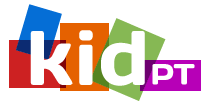

- Call 908 543 4390
- Email
- Dr.Joni Redlich PT,DPT



It can be spooky when it is hard to understand information about your kiddo’s health. October is national health literacy month which advocates for individuals to have the knowledge and access to the information to make informed decisions regarding their health. We believe that knowledge is power, especially when it comes to health. Here are some tips to help optimize your health literacy so that you can make informed health decisions for you and your little ones.
Ask Questions
Always ask clarifying questions to the health professionals that provide care for you and your family. There is no such thing as a “wrong” question, especially if it equips you with knowledge that helps you better understand your health and treatment options. Health care providers have a responsibility to provide education in a way that patients of all backgrounds, cultures, and education levels can understand. If you are more of a visual learner, don’t hesitate to ask for a visual aide that communicates the information.
Do Your Research
It can be intimidating finding reliable information online nowadays. Remember you do not need to do it alone. You can ask your doctor where to start. Good resources usually include sites that end with .gov and most diagnoses have a national association that provides education, research, and local resources. Just remember information you find on the internet can be inaccurate, so discuss the findings of your research with your health care providers so that they can help to weed out what is not helpful.
Community Resources
Often the city or township that you live in will have resources to promote health education. Check out your local library as they not only provide books, but also free access to online databases so that you can search research articles. Often librarians are eager to share their understanding of research and point you in the right direction to helpful resources. Your library is also a great place to start because they can connect you with local agencies and organizations that provide support for your specific concerns or area of interest.
Join Support Groups
Advice from people who have lived in your shoes is priceless. It is impossible to truly understand a situation/ circumstance until you have lived it yourself. Support groups are important as they provide practical advice and tools from people who have experience, affirm that you are not alone, and foster a community that provides support and encouragement to the members. A herd is always more powerful than a lone ranger.
Don’t Panic
Although the process can be frightening and at times overwhelming, it’s important to remember that you are not alone. The full responsibility to diagnose and meet the health needs of your child is not on you. Although it is good to be informed, don’t put the pressure on yourself to be your child’s health care provider. There is one thing you can do better than anyone else; Love and support your child. In order to do that well you need to take care of yourself. Your emotional stability will be a primary source of strength that they can rely on. Pursue a level of understanding that allows you to follow along in the treatment of your child, advocate for their needs, and breathe.

Leave a Reply
Want to join the discussion?Feel free to contribute!